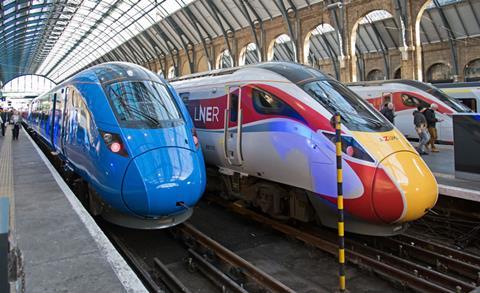
UK: Rail Partners has published a Manifesto for Rail, ahead of the general election which must occur within the next 12 months.
The document sets out five key points which the association of train operator owning groups believes are essential to stabilising the UK rail sector:
- Focus the railway on the customer to balance the books. Give operators freedom to use their commercial expertise and respond to the customer, through transforming the contractual model. Rail Partners says a new model should ‘take commercial decisions out of Whitehall and put them back with rail operators to help grow the railway – meaning more passengers, more services, increased revenue and lower taxpayer support’;
- Let operators compete to connect communities. Allow operators to compete on more long distance routes including open access and encouraging inter-city competition with road and air;
- Overhaul fares. Create a system that is easy to understand and is fit for purpose in a digital age, including expanding the availability of digital tickets to more journey types and investing in more tap-in-tap-out systems in urban areas;
- Prioritise getting freight off roads and onto rail. Invest in infrastructure and create financial incentives for customers to choose rail as the most environmentally friendly mode of freight transport;
- Create a new body to oversee the railways. Legislate to create a new body to provide a single point of accountability to make sure passengers and freight customers are at the forefront of decisions.
‘Our Manifesto for Rail is a five point plan, backed by train companies, to get the railways delivering their full potential for Britain again’, explained Rail Partners CEO Andy Bagnall when the document was published on February 15. ‘It gives whoever forms the next government a clear set of priorities to deliver reform and put the railways back on track to growth.’
He added that ‘there doesn’t have to be a binary choice between a railway monopoly in public hands, and one that delivers competition and innovation by harnessing the commercial expertise of private sector operators. We need the best of both worlds, which means focusing the system outwards on passengers and freight customers by empowering operators to meet their needs, and creating a single accountable body so the public knows who is in charge.’



